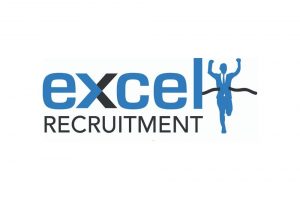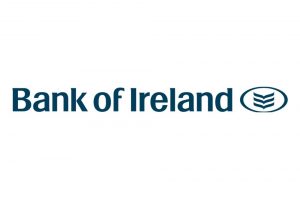
The main legal obligation when becoming self-employed is that you must register as a self-employed person with Revenue and file and pay an annual tax return. You pay tax on the profits from your business and on any other income that you have. If you make a late payment of any taxes due, you will be charged interest from the due date to the date when your payment is received. Below we have laid out everything you need to know. If you require any assistance with your annual return contact us at info@avidpartners.ie or call us at 0818 303087.
Income Tax Relief for the self-employed update
- 23/07/2020: Government announced the introduction of a new once-off income tax relief measure to benefit self-employed who were profitable in 2019 and will make a loss in 2020 as a result of Covid-19.
- Sole traders or members of partnerships will be able to carry back up to €25,000 worth of 2020 losses (and certain unused capital allowances such as wear and tear allowances for plant and machinery, writing-down allowances for industrial buildings and structures and allowances for farm buildings and structures). This will be off set against 2019 profits.
- Claims and interim claims are made by amending the Form 11 tax return for 2019. To make an interim claim you must be fully tax compliant and certain time limits will apply. You can make your interim claim through MyEnquiries on the Revenue website.
General Overview
- Tax returns must be submitted by both residents and non-residents with income in Ireland, unless they’re on PAYE and have no other source of income.
- The Irish tax year runs from 1st January to 31st December. You must file a tax return and pay any tax due (known as the ‘pay and file’ system) by 31st October (known as the ‘specified return date’).
- By this date you must pay your estimate of tax (‘preliminary tax’) for the current tax year, the balance of tax due for the previous year and any capital gains tax due for the period 1st January to 30th September of the current tax year. Note that this is the latest date for paying and filing.
- Preliminary tax is an estimate of the income tax you will be charged in the current tax year and includes PRSI and the Health Contribution.
Payment and Interest Charges
- To avoid interest charges you must pay 90 percent of your liability for the current year or 100 percent of your previous year’s tax bill or 105 percent of your bill from the year before that, whichever is the lowest amount.
- If you don’t pay preliminary tax on the due date, you are charged interest on the amount due at one percent per month. Companies liable to corporation tax must pay income tax and advance corporation tax (ACT), as well as preliminary tax on their profits, within six months of their accounting year end and make a final tax return within nine months.
- Claims for excess capital allowances, trading and rental losses, and group or consortium relief must be submitted within two years of the end of the relevant accounting year. Final ACT adjustments must also be made by then.
Forms and Registration
- Tax forms can be obtained only from tax offices in Ireland. If you’re self-employed or a company director, you should use form 11; PAYE employees and pensioners should complete form 12 and first-time workers form 12A.
- Form 1 is for partnerships and Form CT1 for companies.
- If you submit your return by 31st August, you will be sent a final tax assessment for the previous year before the ‘pay and file’ deadline of 31st October and can therefore be sure that you’re paying the right amount; otherwise you must calculate it yourself (or pay an accountant to do so).
- Another option is to file your tax return online using the Revenue’s ‘ROS’ system, which has the advantage that the amount of tax you owe is calculated for you instantly. You need to register for the system, however, which can take up to two weeks, as certain passwords must be sent to you through the post.
Penalties
- There are penalties for being late with either your tax return or your payments, and you can be fined up to €1,500 if you fail to produce the required documents or (either negligently or fraudulently) make a false declaration of your income.
- If you falsify your tax return in order to reduce your tax liability, you can be imprisoned for up to 12 months and will be fined up to twice the amount owing. If you fail to pay the fine, you can be imprisoned for up to eight years.
- The Revenue Commissioners can publish a list of names of people who have been fined or imprisoned for tax evasion. They also carry out regular checks (called ‘revenue audits’) to ensure that everyone is paying the correct amount of tax.
- A cross-section of returns is selected, as well as a certain number at random. From time to time, particular trades or professions are targeted for audit.
Checklist For Your Annual Tax Return
Before submitting your tax return, you should check that you’ve completed all the sections (where you have no income in a particular category, you should write ‘none’ rather than leave it blank).
If you’re claiming mortgage interest relief, you should enter the loan account number of your lender and attach your mortgage interest certificate stating the amount paid during the last tax year, as well as an estimate of the interest payable in the following year.
Tax forms include customised pay slips showing your PPS number, tax type, etc., which must be returned with the tax form, even if you’re making a nil return. You should also include copies of the following documents:
- Form P60
- Form P45 if you’ve ceased employment
- Details of any benefit in kind (especially a company car)
- If you’re receiving any social welfare income, a statement from the Department of Social and Family Affairs confirming the kind of income, the date payment began and the weekly amount
- Details of any rent paid (which should be entered on form ‘Rent 1’)
- If you’re receiving rental income, a detailed account of gross rent and expenses such as furniture on which you may be entitled to a wear and tear allowance
- Details of any acquisitions and disposals of assets during the tax year which may be liable for capital gains tax
- Documentation relating to government stocks, rents and other income
- The relevant claim form if you’re claiming a dependent relative allowance for the first time
- Details of any allowable medical and dental expenses, which should be entered on forms ‘Med 1’ and ‘Med 2’ respectively
- Confirmation of any private health insurance subscriptions paid during the previous tax year
- Receipts for private tuition if appropriate
- Certificates of private pension contributions
If you’re a company or a sole trader, you also need to submit;
- A trading account showing details of sales and profit/loss for the tax year
- A profit and loss account
- A capital account
- A balance sheet showing business assets and liabilities
- Finally, make sure that you sign the form.
How to Pay
There are a number of ways of paying your income tax in Ireland:
- By cheque – (payable to the Collector-General) posted to the Collector-General’s Office using the pre-paid envelope provided with your tax form; note that a cheque is cashed on receipt.
- By single debit authority – (SDA) as above, the advantage being that an SDA isn’t debited until the due date (i.e. 31st October).
- In person – at the Collector-General’s Office Sarsfield House, Francis Street, Limerick.
- By bank giro – (obligatory for payments of preliminary tax, VAT and employer’s PAYE/PRSI).
- Online – at the Revenues website, either using a debit card or setting up a debit instruction; if you have an account with AIB or Bank of Ireland, you can arrange payment directly from your account.
Contact Avid Partners to help you prepare your annual tax returns. Call us to arrange a consultation at 0818 303087. Email us at info@avidparters.ie.
-
 "A breath of fresh air. Your firm demonstrated enormous commercial understanding in turning around negotiations with a potential target vendor. I admire your style and ability to drive the deal forward. Many thanks."
"A breath of fresh air. Your firm demonstrated enormous commercial understanding in turning around negotiations with a potential target vendor. I admire your style and ability to drive the deal forward. Many thanks." -
 "I would like to say I'm very happy with your service, especially the audit team, your staff are always friendly, helpful and a pleasure to deal with."
"I would like to say I'm very happy with your service, especially the audit team, your staff are always friendly, helpful and a pleasure to deal with." -
 "Your business approach to clients is very impressive. I have always found that when explaining the types of service on offer, it is always concise and straight forward. The level of trust that clients place in your company and its staff speaks volumes."
"Your business approach to clients is very impressive. I have always found that when explaining the types of service on offer, it is always concise and straight forward. The level of trust that clients place in your company and its staff speaks volumes." -
 "I would like to take this opportunity to say how much we are impressed with your company's professionalism, it has been a pleasure working with you all and we look forward to working with you in the future."
"I would like to take this opportunity to say how much we are impressed with your company's professionalism, it has been a pleasure working with you all and we look forward to working with you in the future." -
 "Avid Partners - Accountants & Business Advisors are an excellent firm of accountants, their quality ethos is outstanding."
"Avid Partners - Accountants & Business Advisors are an excellent firm of accountants, their quality ethos is outstanding." -
 "I have dealt with Jamie O' Hanlon, of Avid Partners - Accountants & Business Advisors Chartered Certified Accountants, for a number of years as he is auditor to one of my clients. I have always found him to be professional and responsive in his approach."
"I have dealt with Jamie O' Hanlon, of Avid Partners - Accountants & Business Advisors Chartered Certified Accountants, for a number of years as he is auditor to one of my clients. I have always found him to be professional and responsive in his approach." -
 "Service is second to none; there is always someone at the end of the phone for any business advice. The staff are very easy to get along with, very approachable and know exactly what they are talking about"
"Service is second to none; there is always someone at the end of the phone for any business advice. The staff are very easy to get along with, very approachable and know exactly what they are talking about" -
 Having got to know the company through the BNI we decided it was time to change accountant. What impressed me about Avid Partners was their professionalism. Their attention to detail was second to none and as an added bonus they are a sounding board to all of my questions. Avid also potted some irregularities in my accounts from the previous few years and saved me substantial money on the years tax bill. Avid Partners deliver a first class service which is everything you could want from an accountant and I am happy to give this endorsement.
Having got to know the company through the BNI we decided it was time to change accountant. What impressed me about Avid Partners was their professionalism. Their attention to detail was second to none and as an added bonus they are a sounding board to all of my questions. Avid also potted some irregularities in my accounts from the previous few years and saved me substantial money on the years tax bill. Avid Partners deliver a first class service which is everything you could want from an accountant and I am happy to give this endorsement. -
 We at Fitzies Bar have worked with Avid Partners - Business & Financial Advisers for over five years. We find that the advice and support offered to us in addition to all of our book-keeping requirements to include payroll, VAT, etc. is invaluable and has helped to contribute to our continued growth especially in these challenging times. I would have no hesitation in recommending Avid Partners.
We at Fitzies Bar have worked with Avid Partners - Business & Financial Advisers for over five years. We find that the advice and support offered to us in addition to all of our book-keeping requirements to include payroll, VAT, etc. is invaluable and has helped to contribute to our continued growth especially in these challenging times. I would have no hesitation in recommending Avid Partners. -
 Jamie and his staff are a pleasure to work with. They respond promptly to any queries we have and are critical to our financial planning and the future needs of our business. I would highly recommend them to anyone interested in accounting services.
Jamie and his staff are a pleasure to work with. They respond promptly to any queries we have and are critical to our financial planning and the future needs of our business. I would highly recommend them to anyone interested in accounting services. -
 We at Stillorgan Cycles have used Jamie and his Team at Avid Partners – Accountants and Business Advisers for over five years. We have found that the retail advice and support offered to us is second to none and has helped to contribute to our continued growth especially in these challenging times. I would have no hesitation in recommending Avid Partners.
We at Stillorgan Cycles have used Jamie and his Team at Avid Partners – Accountants and Business Advisers for over five years. We have found that the retail advice and support offered to us is second to none and has helped to contribute to our continued growth especially in these challenging times. I would have no hesitation in recommending Avid Partners. -
 I met Avid Partners through a local business networking group. We had been using the same accountants for years and found that in these harsh economic times that we were not getting good enough value or service. We were very impressed by the company's professionalism and enthusiasm and genuine interest in helping us get the most out of our business. As a result we are now clients of Avid Partners and are thrilled with our decision.
I met Avid Partners through a local business networking group. We had been using the same accountants for years and found that in these harsh economic times that we were not getting good enough value or service. We were very impressed by the company's professionalism and enthusiasm and genuine interest in helping us get the most out of our business. As a result we are now clients of Avid Partners and are thrilled with our decision.
